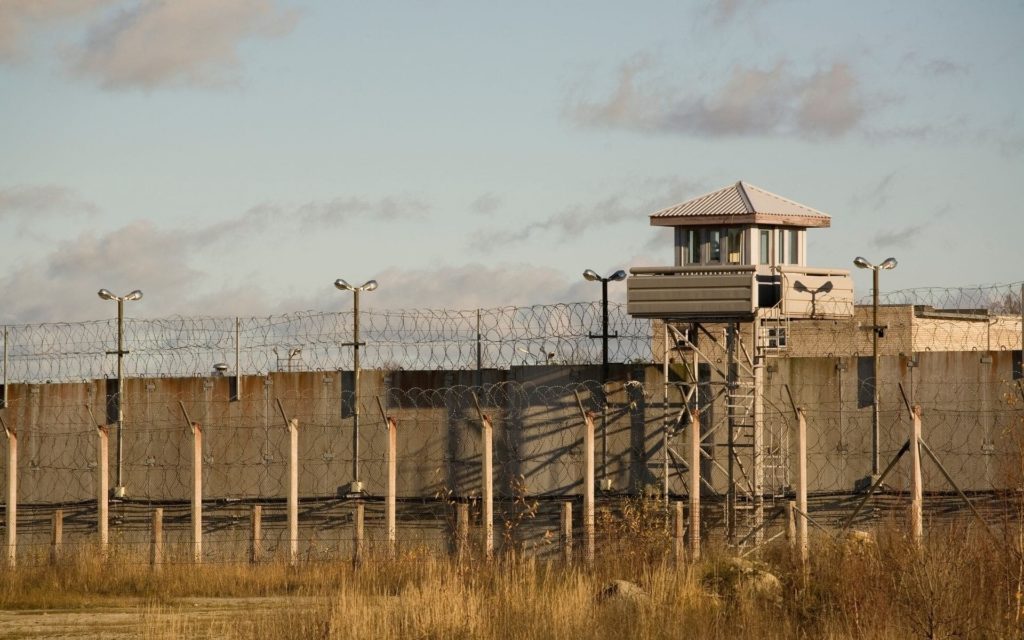You may be surprised to learn that in 2022, a young man is facing 10 years to life in jail for cannabis.
That’s right, in a country where 37 states have already legalized the plant, someone could spend a large chunk of their life behind bars because of cannabis.
This is the case of Jonathan Wall. He has already spent the last two years in jail waiting for his trial. Now with the trial date finally upon us, it is a great time to spread more awareness about his situation — as well as the situation so many other people and their families face.
 Who is Jonathan Wall?
Who is Jonathan Wall?
Jonathan Wall is a 27-year-old from Maryland who moved to California looking to join the marijuana industry there. California is a state that has fully legalized cannabis use for the past 6 years. Jonathan, who has stated he felt a connection to the plant since he was introduced in his teenage years, wanted to make a living off of something he was passionate about.
Unfortunately, the hypocrisy of the US reared its ugly head. Jonathan was arrested on June 29th, 2020 after being indicted for conspiracy to distribute cannabis across state borders.
Despite living and operating in a state where the plant is 100% legal, Jonathan was arrested and has spent the last two years in a supermax prison for a non-violent crime.
Background of the Case
The reason why Jonathan is being held in prison is not thanks to the state of California. It is the federal government that has charged Jonathan Wall and others, because of an alleged attempt to move and distribute cannabis to other states.
Even if the plant is moved to another state where it is fully legalized, that is still technically a violation of federal law and you can easily be sent to jail. In a global society where people are moving around constantly, it seems absurd that you cannot transport cannabis from one legal state to another.
 When he initially heard of his indictment, Jonathan feared for his safety and fled to Guatemala. He later return to the US to self-surrender, where he was arrested immediately upon de-boarding his plane. Since then he has spent time in a supermax prison called the Chesapeake Detention Facility in Baltimore. Which is a mere 40 miles away from a marijuana grow facility.
When he initially heard of his indictment, Jonathan feared for his safety and fled to Guatemala. He later return to the US to self-surrender, where he was arrested immediately upon de-boarding his plane. Since then he has spent time in a supermax prison called the Chesapeake Detention Facility in Baltimore. Which is a mere 40 miles away from a marijuana grow facility.
Because Jonathan was arrested in June of 2020, he entered the prison system exactly as Covid-19 was spreading. With many describing this period of time as inhumane, prisons around the US suffered some of the highest infection rates with little actionable responses to help prisoners.
The Chesapeake Detention Facility was no different. During the peak, nearly all prisoners and staff were infected with Covid-19 and denied access to cleaning supplies. Because of the horrible conditions, a class-action lawsuit was filed by the Lawyers’ Committee for Civil Rights Under Law and recently settled in favor of the prisoners.
Jonathan has lived in those conditions for the past two years. Facing a mandatory minimum 10-year sentence and up to life in prison. All without ever committing a violent crime.
There is absolutely no reason why someone should ever face life in jail without committing a violent crime. If marijuana were decriminalized on the federal level, then Jonathan would not face jail time as a penalty. Just another reason why we must decriminalize as soon as possible.
The Prison Industrial Complex:
The United States has been proven to have a deeply engrained Prison Industrial Complex (PIC). This is part of the reason why Jonathan is facing life behind bars.
The Prison Industrial Complex basically means pushing people into prison rather than finding solutions to economic, social, or political issues. There are several industries built on the PIC that only thrive with more people in jail — as such they will try everything within their power to put and keep people in prison.
The War on Drugs is a textbook example of the PIC in action. Rather than finding a real solution to high rates of overdoses and illicit drug trades, the US decided to increase its punishments and throw hundreds of thousands of Americans in prison. Mostly black and brown American men.
 A unique aspect of how the prison system traps people who are accused of non-violent drug-related crimes is through mandatory minimum sentencing. As mentioned earlier, Jonathan Wall is currently facing a mandatory minimum of 10 years in prison. This means if he is found guilty, he will serve at least 10 years.
A unique aspect of how the prison system traps people who are accused of non-violent drug-related crimes is through mandatory minimum sentencing. As mentioned earlier, Jonathan Wall is currently facing a mandatory minimum of 10 years in prison. This means if he is found guilty, he will serve at least 10 years.
Anyone can quickly acknowledge that 10 years seems extreme for a non-violent crime. What makes mandatory minimums insidious is the fact they cannot be matched to the crime — meaning the jury has no idea the minimums are there when they give their verdict and the judge has no choice but to enforce them.
The punishment should always fit the crime. When the jury is in the trial, determining whether Jonathan is guilty, they are not told he will face a minimum of 10 years. If they were provided information on how severe a penalty he will get, they are more than likely going to adjust how they approach the case.
Rather than serve as a deterrence, mandatory minimums have only served to throw thousands of innocents into jail for non-violent crimes. This has not only disrupted their and their families’ lives but crowded the prison system, cost the US millions, and done nothing to reduce the illicit drug trade.
The effects of the War on Drugs persist despite the increase in states with drug decriminalization. Until the United States federal government steps up and enacts real change and recompenses to those impacted communities, we will continue to see young people thrown in prison for non-violent crimes.
Free Jonathan:
No person should be spending any time in prison for cannabis. Jonathan, like so many others waiting in America’s prisons, must be freed immediately if they have not committed any violent crime.
Marijuana is a plant, a plant that can help heal people and improve lives. Making it illegal only hurts innocent people and prevents access to its healing properties.
Please take a moment to sign this petition to help free Jonathan. His trial is scheduled to start on May 2nd. By making our voices loud enough, hopefully, we can reach the ears of our legislators and judicial system.





No Comments